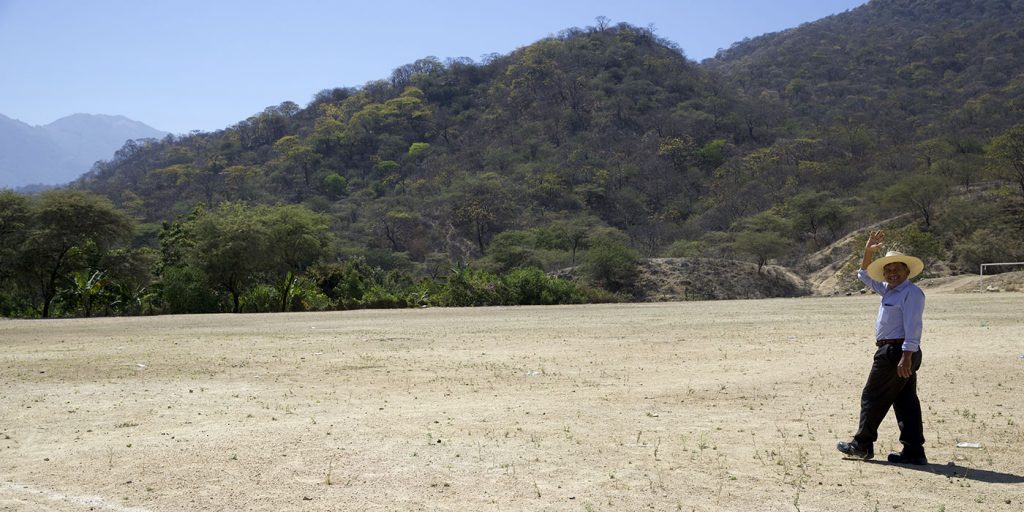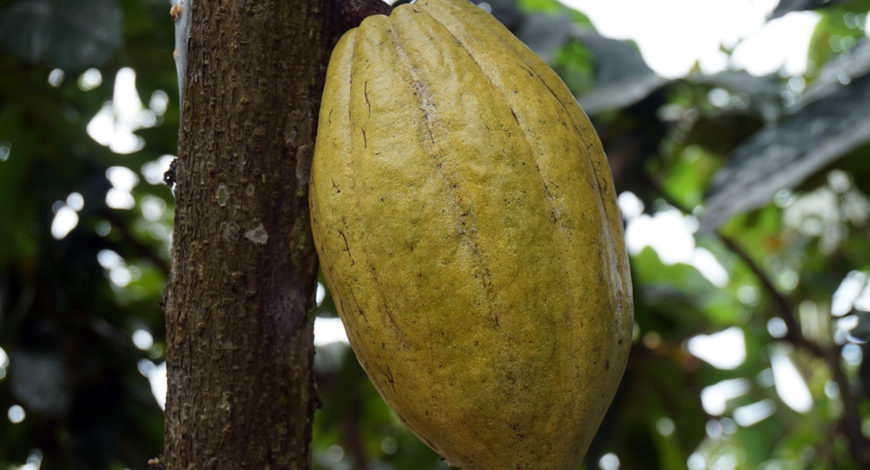Having received awards in 2014 and 2018, Piura BIO’s cocoa is of exceptional quality. Boasting a strong aroma with a slight nutty taste, with just the right amount of acidity and no bitterness. This is what makes the profile of Piura beans so distinctive and unique.
Chocolate professionals define this superior cocoa as being of remarkable quality, with a unique taste and great finesse.
Aymara Food successfully entered into a partnership with the Piura cooperative located in Peru so that this premium product could be exported to the greatest chocolate makers in Europe and further afield.
Through this article, we would like to share with you our meeting with one of the small producers of this exceptional organic cocoa.
Piura’s organic cocoa, a truly unique bean
Peru is known to produce the greatest genetic diversity of cocoa in the world. In the Piura region, located on the western slope of the Andes, a unique type of cocoa was discovered in 2006, characterised by the presence of white seeds with a particular colour and flavour.
Piura cocoa is considered to be a unique germ due to the uniformity of its phenotype. Its genotype has not yet been determined by specialists. It is likely that wild cocoa from the Amazonian forest has adapted to the dry and arid but highly irrigated climate of the Piura region.
The cultivation of this organic cocoa is located between 100 and 800 metres above sea level, surrounded by other fruit trees, in an ecosystem built by local producers.
The taste and aromas of “Cacao Blanco de Piura” vary from one production area to another, resulting in the creation of four appellations of origin: Piura Blanco, Gran Blanco, Chulucanas and Morropón.
The incomparable aroma of Piura cocoa has already earned it several national and international awards. The cooperative in this region has 700 associate producers.
Visiting an organic cocoa plantation in Peru
The Aymara Food team visited the stunning Piura region of Peru in August 2018. We met one of the organic cocoa producers, Juan Rivera, who won the 2014 Gold Award.
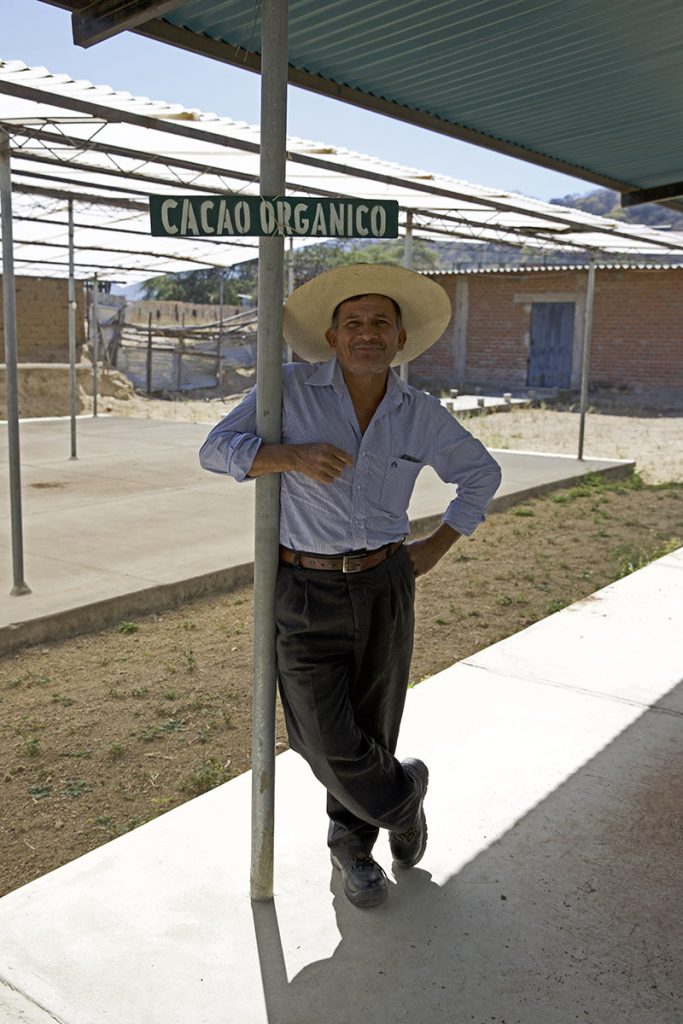
His premium cocoa, which he has been growing for more than 30 years, comes from a small community in Palo Blanco called the “Chulucanas”, whose total production area was 120 hectares in 2017.
El señor Juan invests heavily in his own one-hectare Finca with the objective of maintaining his production of organic cocoa that is ranked among the best in the world.
The cooperative to which Juan belongs is made up of 31 farmers who work on 1,500 hectares of organic cocoa. Producers receive training in organic crop handling, pruning and post-harvest approaches.
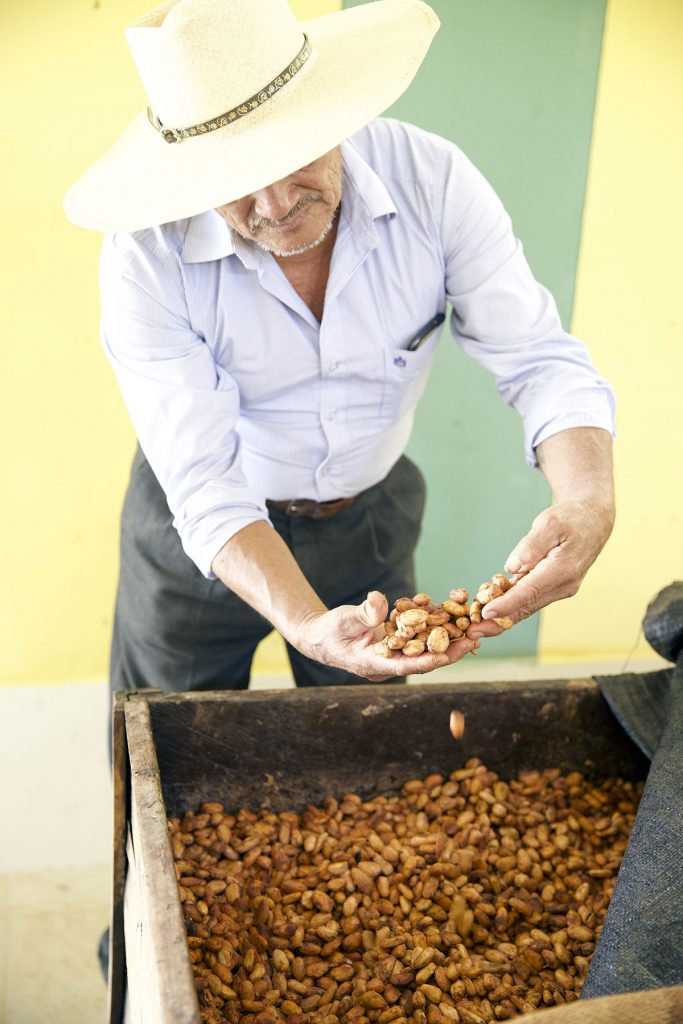
Their products are certified organic and meet several other quality labels such as SPP (small producer), Kosher, FairTrade and Global G.A.P.
To comply with organic standards in cocoa cultivation, only guano and magnesium and potassium sulphates are allowed to treat cocoa trees.
The cooperative ensures the direct trade of organic cocoa in order to improve the quality of life of producers and guarantee its customers optimal traceability of its exceptional products, sold at a fair price.
El señor Juan was kind enough to share his knowledge with us. The cultivation, maceration and the entire drying process of cocoa beans hold no secrets for Aymara Food!
From cocoa plants to chocolate
Juan explained that long before you can taste the chocolate, you have to plant the cocoa bean following a lengthy and delicate process.
First, a hole is dug in the ground in which ashes are placed to disinfect it. Then, with great care, the roots from beans, which have been left to germinate for 12 weeks in a bag, are planted there.
The first harvest takes place four to five years thereafter. The cocoa tree produces about 80 pods per year which take between four and seven months to mature.
Generally, the harvest takes place over two periods: from November to March, and from May to July.
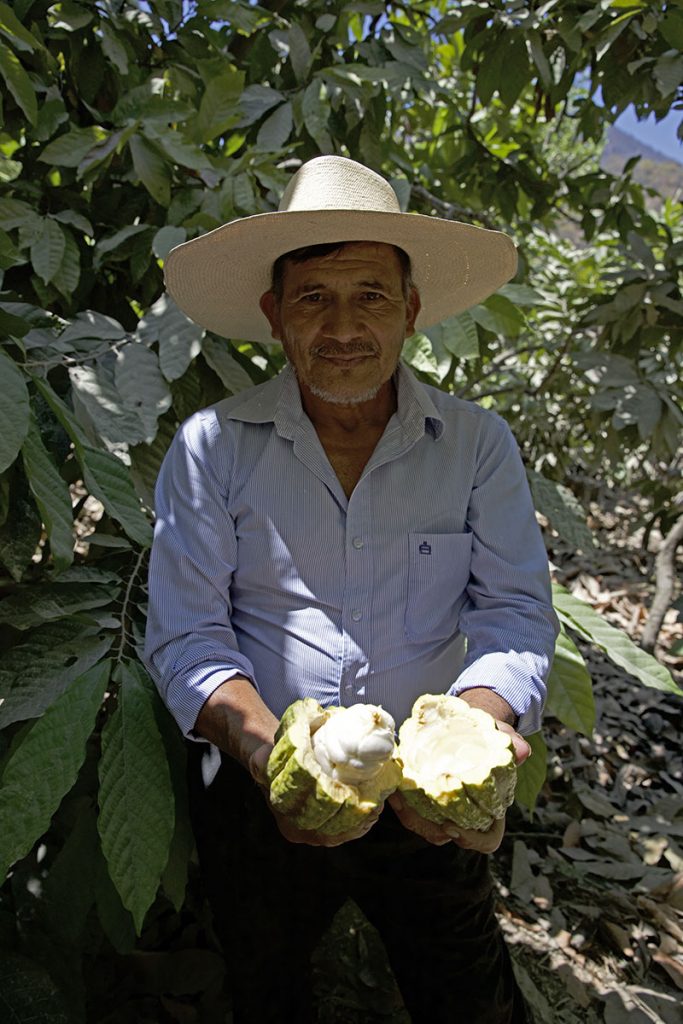
The first stage of cocoa harvesting is called dehusking. The pods are hand-picked and split with a machete to extract between 20 and 60 seeds, which are the cocoa beans.
In order to avoid any risk of bacteriological contamination, the beans are transported in biodegradable and recyclable single-use bags.
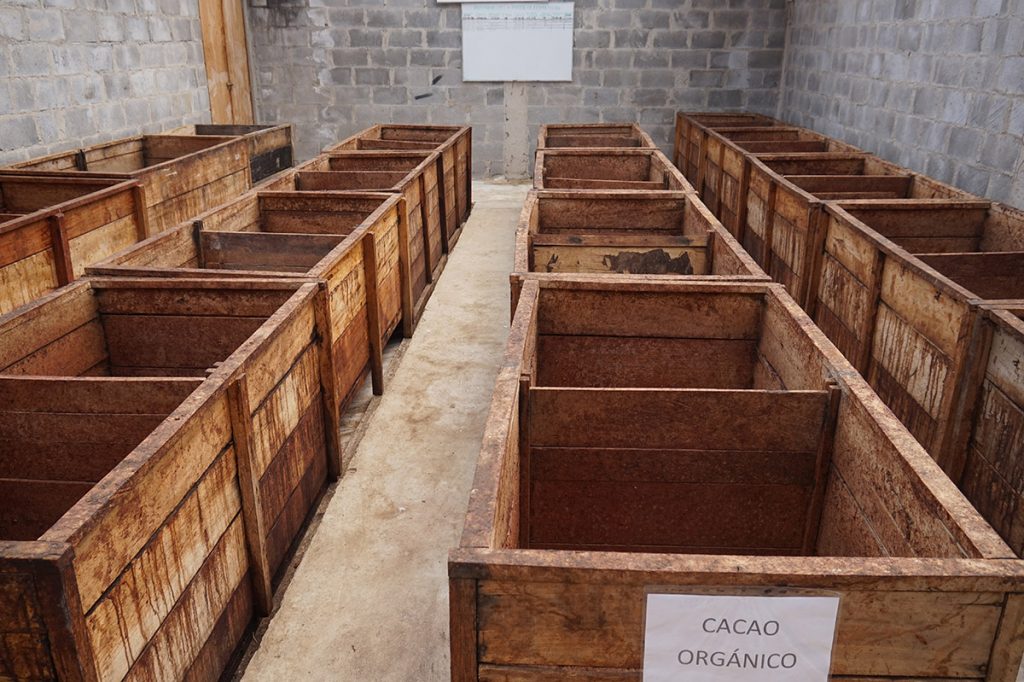
The following steps are crucial. The taste of the future cocoa lies in the fermentation of the beans (which lasts between 6 and 8 days), followed by the drying of the beans in the sun.
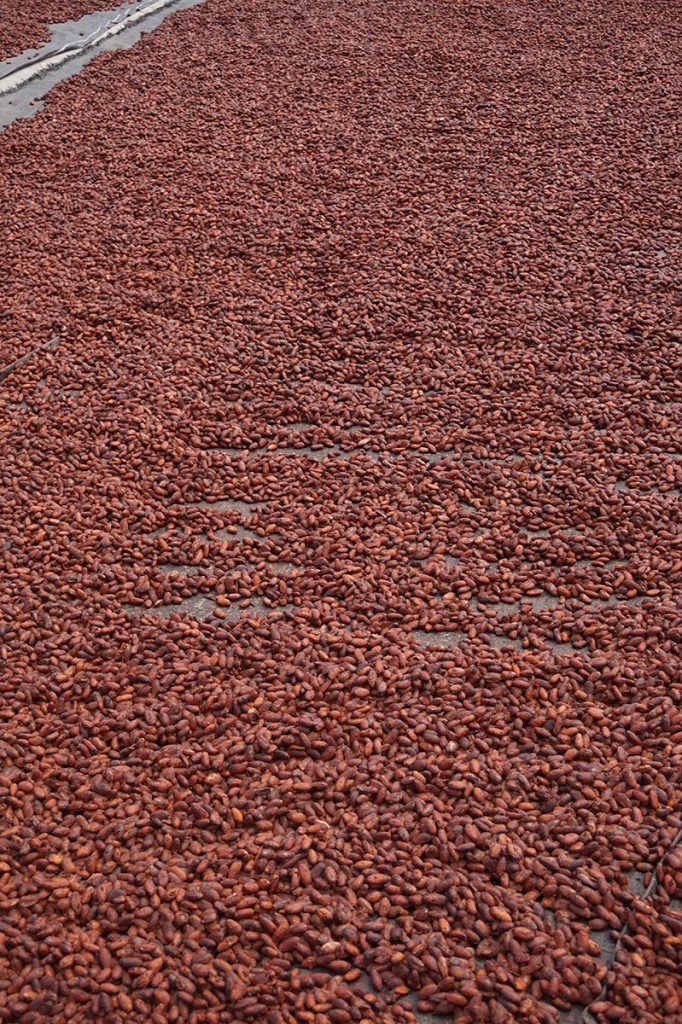
The hard and respectful work put into its product resulted in the cooperative being awarded the first prize in the National Cocoa Quality Competition in July 2018.
Juan explains: “We won the trophy with the cocoa from “Charanal”. Never before have specialists seen such a concentration of white beans, considered to be the rarest and finest in the world. We are very proud to offer these ultra-premium and such exquisite beans!”
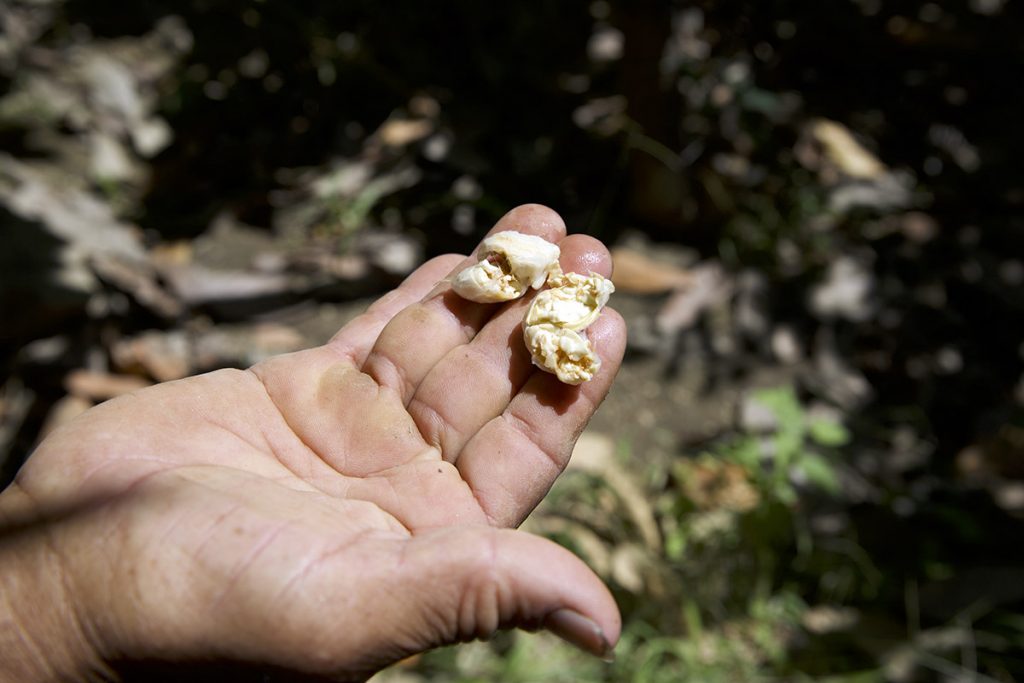
The partnership between Aymara Food and the Piura cooperative aims to share this exceptional organic cocoa with the best chocolate makers in the world.
